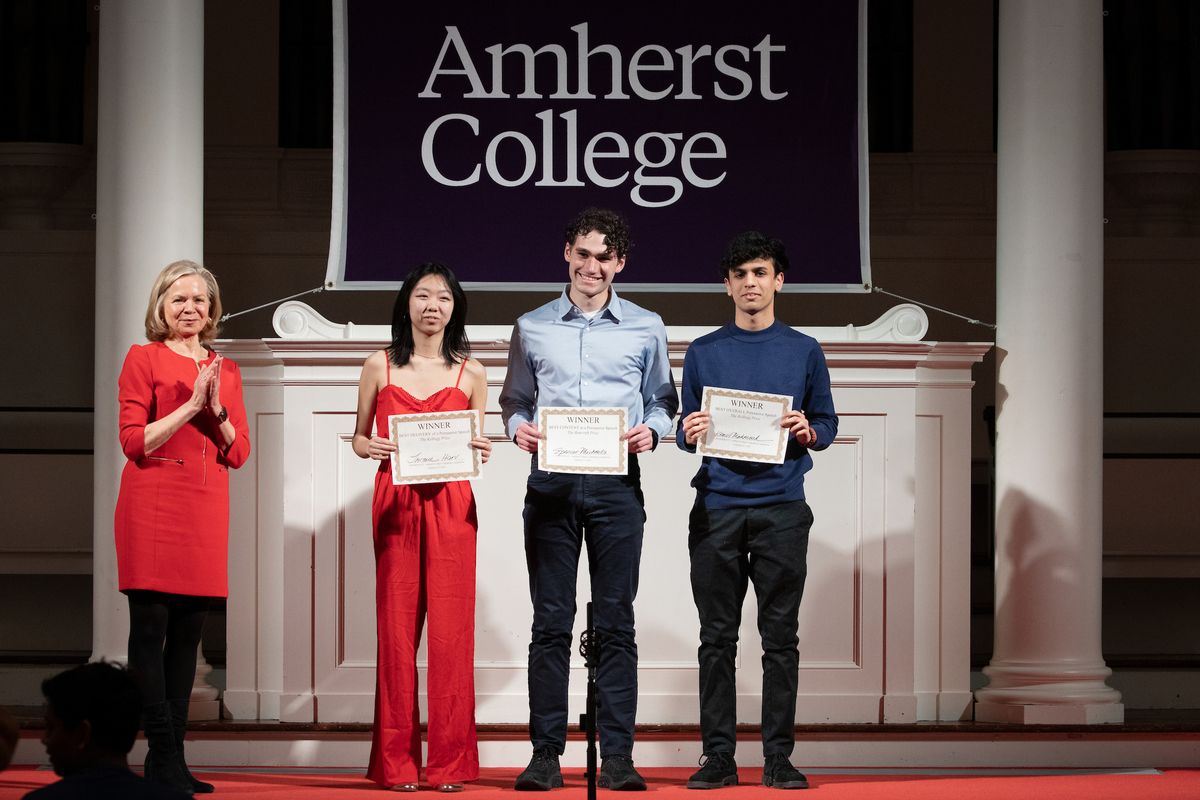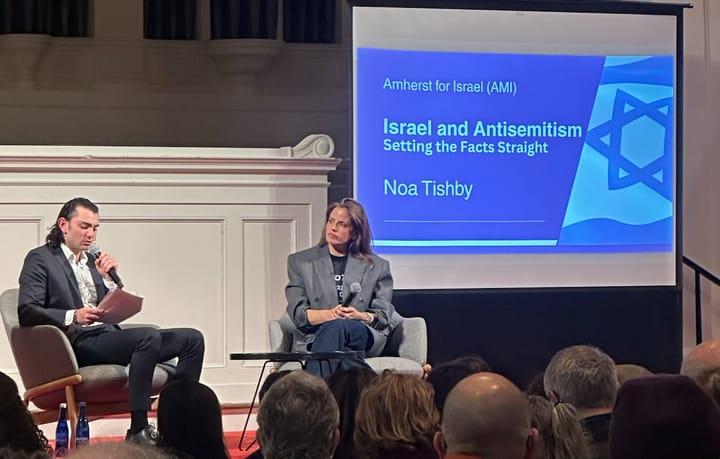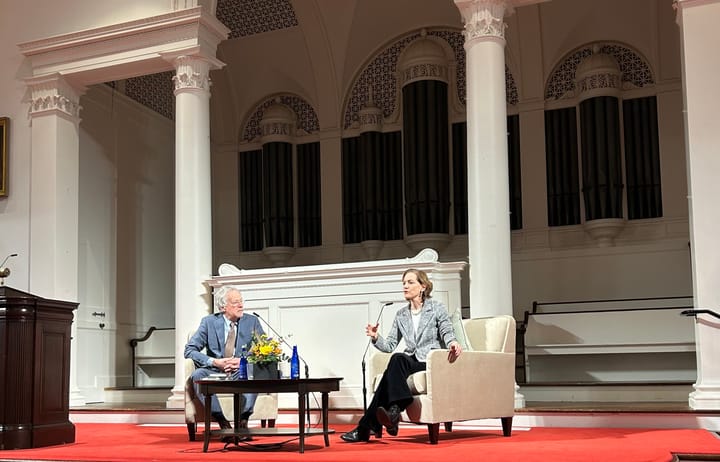Students Participate in “Democracy” Speaking Competition
Covering topics ranging from generative AI to book bans, eight students took to the Johnson Chapel stage for the Writing Center’s annual speaking competition. This year’s theme was democracy.

The Writing Center held its annual speaking competition in Johnson Chapel on Thursday, Feb. 22. Eight students performed self-written persuasive pieces dedicated to this year’s theme, democracy. Topics ranged from issues with AI to the impacts of book banning across the country.
Associate in Public Speaking Susan Daniels served as host for the event while
Assistant Professors of Political Science Eleonora Mattiacci, Assistant Professor of Acting Raffeal Sears, and Professor of Law, Jurisprudence, and Social Thought Martha Umphrey judged and scored the students.
Three distinct awards were given: Best Overall Persuasive Speech, Best Content in a Persuasive Speech, and Best Delivery of a Persuasive Speech.
Of the eight speakers, Spencer Michaels ’24 was awarded Best Content, Jaimie Han ’26 was awarded Best Delivery, and Kamil Mahmood ’27 was awarded Best Overall Speech.
Isaac Oh ’27 kicked off the event with an appeal to local democratic participation and voter registration with his speech, “Friendly Neighborhood Citizen.”
Margeaux Matz ’27 followed with her piece, “Loneliness is Eroding Our Democracy,” which touched on the negative impacts of groupthink, belonging, and the ‘us vs. them’ mentality.
The winner of the Best Content award, Spencer Michaels ’24, spoke on how artificial intelligence and the spread of misinformation have the potential to hurt democracy. His coined phrase, “Distrust and Verify,” served as the title for his speech and a reminder to be cautious about information and verify its validity.
Claire Beougher ’26 followed with her speech, “Trust Yourself. Believe in Democracy,” in which she emphasized the importance of trusting oneself and one another, calling this trust the foundation of democracy.
The next speaker, Kamil Mahmood ’27, was an audience favorite. His speech, “How to Scare a Military Dictator,” considered how even small acts of subversion, such as humor, can empower democracy and inspire change.
“[Kamil’s] speech was really compelling. I liked his use of anecdotes when talking about the situation in Pakistan,” Jackson Lee ’24 said. “His use of humor also was a nice touch; it made it feel like it hit home.”
Mahmood’s opening lines were very different from the rest of the speakers, beginning his speech with an air of humor that continued throughout.
“I don’t really understand why democracy is such a great system,” he began.
“You know, at Amherst College, it seems like we’re all about it. Save democracy, protect democracy, take a pledge to serve democracy … but like why? And sorry President [Michael] Elliott or anyone else here who really loves democracy,” he joked.
His overarching question for the audience throughout his speech was what exactly makes democracy worth protecting — a question he ended up being able to answer.
“Dare I say democracy is worth protecting because it lends power to something as small, as meaningless, as inconsequential as a joke,” he explained.
When asked about the writing process, Mahmood explained that audience engagement was crucial.
“The most important aspect of the speech-writing process is the audience experience. Any message that a speech tries to deliver is meaningless if the audience isn’t fully invested in your words,” he said.
After Mahmood’s speech, Macy Li ’27 discussed the harmful effects of book banning in her speech titled “Silenced Stories.” She spoke about the freedom to read, advocating for pushback against censorship and book bans across the country.
In the next speech, titled “North Korea,” Jaimie Han ’26 spoke about encouraging listening and discussion rather than antagonizing those with differing views. For her powerful combination of humor and emotion, Han was awarded the Best Delivery of a Persuasive Speech Award.
The last speech of the night was “War, Words, and Democracy” by Terrence Wu ’27, who similarly spoke about the unhealthy political climate of hate and anger and how it holds democracy back.
In general, this year’s theme proved successful, bringing discussions of democracy to the front of students’ minds ahead of this year's presidential election.
Many students who attended the competition found their peer’s speeches eye-opening. Nora Lowe ’26, who attended the competition, reflected on what she got from the event’s theme.
“It was a good reminder to have patience and empathy, separate the politics from the person, and give people a chance to explain where they’re coming from,” she said.
Similarly, Mahmood reflected on what he thought about this year’s theme as one of the speakers.
“Putting democracy at the forefront of a public speaking competition encourages one to find engaging and interesting ways of communicating such important ideas. Amherst has a rich history of public speaking, and it’s encouraging to see widespread interest in continuing this long tradition,” Mahmood said.





Comments ()